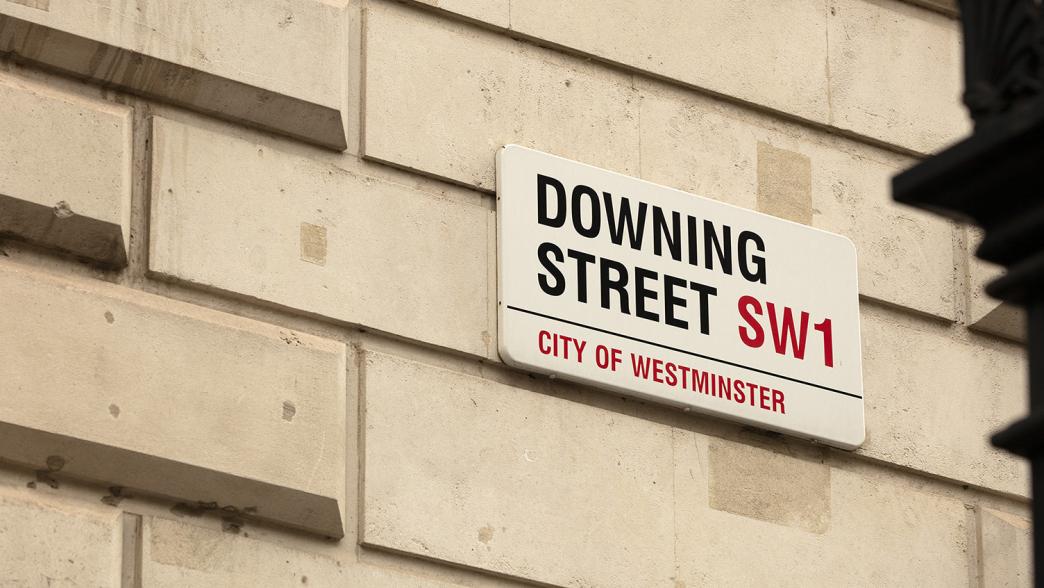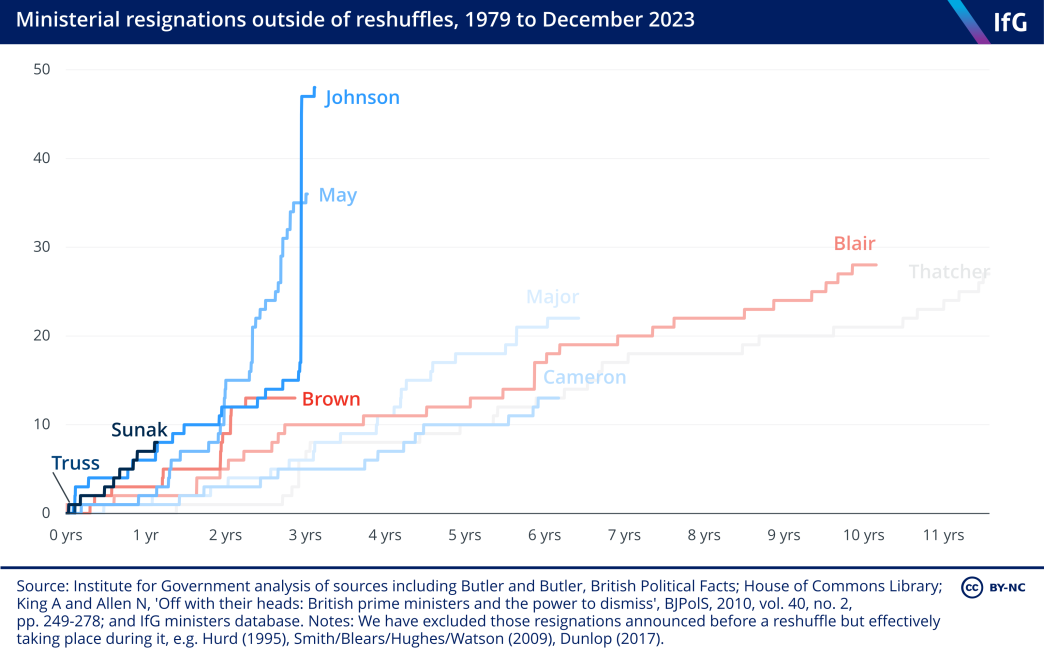Collective responsibility
Collective responsibility is the convention whereby individual members of the government are accountable for the actions and decisions of government.

What is collective responsibility?
Collective responsibility is the convention whereby individual members of the government are held accountable for the actions and decisions of government as a whole.
It is a constitutional convention that has existed since the 18th century and is considered a cornerstone of cabinet government.
What does it cover?
Collective responsibility has two main components. First, the principle that ministers should be able to have free and frank discussions prior to coming to a collective decision, and that these discussions should remain confidential. Second, that once a position has been agreed in cabinet, all ministers are expected to abide by that position and vote with the government, or else resign from office.
Prime ministers can take a flexible approach to collective responsibility, such as overlooking media coverage which suggests there are ministerial disagreements or leaks of information from government. However, in both cases it depends on the severity of the breach and the context in which it has occurred. The strength of the prime minister’s own position can influence his or her willingness to enforce collective responsibility.
For example, between 2016 and 2018, the then foreign secretary, Boris Johnson wrote articles and participated in newspaper interviews in which he set out positions that were not government policy. But Theresa May, the prime minister at the time, decided not to discipline him for these transgressions.
The one area where collective responsibility is most strictly enforced is in votes in parliament. The Cabinet Manual sets out clear rules for ministers and parliamentary private secretaries to vote with the government. It is this rule which binds together a broad ‘payroll vote’ on which the government expects to rely.
Can collective responsibility be set aside?
Yes. It was formally set aside during the 2016 EU referendum campaign so that ministers could campaign for either side of the vote. Collective responsibility was also suspended in October 2016 so that ministers could maintain individual positions on the decision to build a third runway at Heathrow.
For example, David Cameron allowed ministers to publicly disagree with the government’s stated Remain position during the Brexit referendum campaign. However, in a letter to ministers he made it clear that this exception only applied to "the question of whether we should remain in the EU or leave". Collective responsibility still applied to all "other EU or EU-related business", in addition to the government’s domestic policies.
Historically, collective responsibility has also been relaxed during periods of coalition government. During the 2010–15 Conservative-Liberal Democrat coalition, collective responsibility was set aside for certain party political issues, including the 2011 referendum on electoral reform.
Does it also apply in the devolved administrations?
Collective responsibility does apply in the devolved administrations of Scotland and Wales; in both cases it functions in a broadly similar way as in Westminster. For example, the Welsh ministerial code says that ministers "can argue freely in private" but must maintain "a united front when decisions have been reached [by the cabinet]". Similarly, the Scottish ministerial code states that a minister who publicly disagrees with the Scottish government’s position should "consider whether it is appropriate to resign".
Collective responsibility does not apply in Northern Ireland. Part of the reason for this is that the Northern Ireland executive is designed to function with a mandatory coalition between unionist and nationalist parties. It is therefore difficult for Northern Irish ministers to maintain a united front on all issues – not least the constitutional status of Northern Ireland.
How is collective responsibility enforced?
Ministers who have breached collective responsibility are, in theory, expected to resign. However, while the ministerial code sets out the rules around collective responsibility, it also states that the document is ‘guidance’ and that only the prime minister can make the final decision based on their power to hire and fire.
If the prime minister does decide that an MP can no longer remain as a government minister, then they will usually invite them to voluntarily offer their resignation. In the very rare cases where they decline this invitation, the prime minister has the ability to sack them from the government. For example, in May 2019, Gavin Williamson was ‘sacked’ as defence secretary by Theresa May after the prime minister believed that he was the source of a leak from a National Security Council meeting. Williamson disputed the prime minister’s accusation and refused to voluntarily resign from government.

What happens if collective responsibility is breached?
A breakdown of collective responsibility can have major political costs: frequent leaking of cabinet discussions undermines ministers’ willingness to contribute honestly to policy discussions, and governments which fail to maintain a unified public view are vulnerable to attacks from parties in opposition.
After the UK voted to leave the European Union in 2016, Theresa May’s government struggled to uphold collective responsibility. On a number of occasions, ministers openly voted against the government without facing any punishment. For example, in March 2019, eight cabinet ministers voted against a government motion to request an extension to Article 50. This included the leader of the House, Andrea Leadsom, who remained in her post until June 2019.